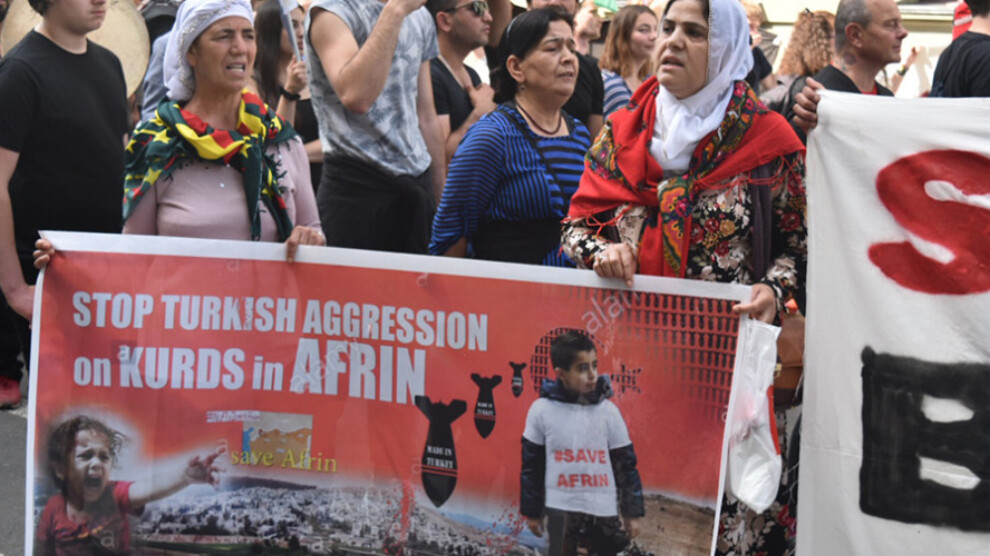Five years ago, Turkey launched air strikes on Afrin
On 20 January 2018, Turkey launched air strikes on 100 locations in Afrin, as the onset of an invasion they dubbed ‘Operation Olive Branch.’
On 20 January 2018, Turkey launched air strikes on 100 locations in Afrin, as the onset of an invasion they dubbed ‘Operation Olive Branch.’

Afrin Canton was the westernmost canton of Rojava and North and East Syria, home to 200,000 ethnic Kurds. Though the population was overwhelmingly Kurdish, it was home to diverse religious groups including Yazidis, Alawites and Christians alongside Sunni Muslims.
On 20 January 2018, Turkey launched air strikes on 100 locations in Afrin, as the onset of an invasion they dubbed ‘Operation Olive Branch.’
The stated reason for the invasion was to secure the Turkish border against cross-border attacks from Afrin. But a BBC investigation found the Turkish government had grossly inflated the figures cited to justify the invasion, claiming a figure of 700 cross-border incidents originating from Afrin alone when in reality Turkey only experienced 26 cross-border attacks from the whole of Syria combined.
The Turkish Airforce ‘indiscriminately shelled civilians' as well as YPG/YPJ positions, while a ground assault was carried out by factions and militias organised under the umbrella of the Turkish-backed National Army.
By 15 March, Turkish-backed militias had encircled Afrin city and placed it under artillery bombardment. A Turkish airstrike struck the city’s only functioning hospital, killing 16 civilians.
Civilians fled and the SDF retreated, and by 18 March Turkey was in de facto occupation of Afrin. Between 400 and 500 civilians died in the invasion, overwhelmingly as a result of Turkish bombing. Other civilians were summarily executed in the field.
Prior to the Turkish invasion, it had been one of the most peaceful and secure parts of Syria, virtually never seeing combat during the civil war bar occasional skirmishes between YPG/YPJ and jihadi forces on its borders. As a result, Afrin offered peaceful sanctuary to over 300,000 internally displaced people from elsewhere in Syria.